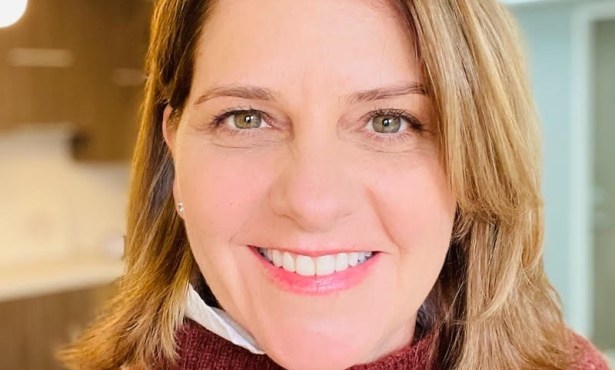What Are Santa Barbara Women’s Health Care Needs?
New Group Hosting Public Forum to Solicit Experiences, Identify Gaps in Service

Interest and energy are coalescing around a new organization ― the Santa Barbara Women’s Health Coalition (WHC) ― after a physician independently called for improvements in local women’s health care.
Dr. Katrina Mitchell said she received an outpouring of public support for an op-ed she penned for the Independent in the wake of the Roe v. Wade decision that called on Santa Barbara’s medical establishment to begin prioritizing and coordinating a full continuum of women’s health care, from the gynecological needs of teenage girls to treatment for menopause. The positive response encouraged her to form WHC, which is hosting a public forum this Saturday in Goleta.
“Our goal is to fact-find and really evaluate what women are experiencing here so that we can identify what works and what gaps exist,” said Mitchell, a breast surgeon, lactation consultant, and perinatal mental health provider. “We want this forum to be a place where we can share our experiences, listen, and validate concerns.” The WHC, Mitchell explained, will then present its findings to Santa Barbara’s healthcare leaders “with hopes of garnering support and resources to make effective change.”
Leading the discussion itself will be Kathy Kelley, a development director at Montessori Center School who has volunteered to facilitate and organize the coalition’s first steps. Others with connections to Santa Barbara’s well-known women-first organizations, including Girls Inc., Planned Parenthood, and the Junior League, have also expressed an interest in attending. State Senator Monique Limón is sending a representative as well.
Dr. Kurt Ransohoff, CEO of Sansum Clinic, said he shared Mitchell’s passion for women’s healthcare and that Sansum is supportive of her efforts to advance dialogue on the subject. “As the biggest provider of OB/GYN care in Santa Barbara, and a main provider of primary care and more than 50-plus different types of specialty care, all which serve women, we are always open to hearing from our patients about what they want and need from their healthcare experience, and from their physicians,” he said.
One potential long-term goal of WHC, Mitchell said, could be the creation of a women’s health care center in Santa Barbara with a whole host of services ― like OB/GYN checkups, mammogram appointments, midwifery support, high-risk pregnancy scans, pelvic floor therapy, bone density measurements, mental health care, and so on ― all under one roof. “All parts of the reproductive cycle,” she explained. “There are many, many examples of this in other cities.” Such an initiative would not only begin the process of providing much-needed coordinated care, Mitchell said, but also “generate awareness to how special women’s health needs really are.”
Ransohoff, however, urged caution over thinking too big too fast. “While we share the vision of adding new investments in programs, technology, or facilities to elevate women’s healthcare experience, we will need to be thoughtful and selective about our financial commitments in the near term,” he said. “Like many healthcare institutions across the country, our organization is still experiencing the economic pressures of the pandemic alongside rapidly rising inflation.”
Sign up for Indy Today to receive fresh news from Independent.com, in your inbox, every morning.
In the meantime, Erin Foster, a physical therapist and mother of two, said she was happy to offer her gym as a space for WHC’s inaugural meeting and to help kick-start the conversation. “It’s such a layered issue at the moment here in the community,” she said. “Especially with the shortage of providers, everyone just feels like they’re scrambling.”
Janet Lengsfelder, a semi-retired registered nurse and one of the founding mothers of the Birth Resource Center, which eventually evolved to be the Santa Barbara Birth Center, said she hopes the city is finally ready to “fill the void” of coordinated care for women. “Although we have extremely qualified professionals, para-professionals, and lots of experienced mothers who are able and willing to provide education, support, and a wide variety of services for the unique needs of women, they operate as separate entities,” she said, noting that has been the case for decades.
Santa Barbara residents often struggle to navigate the local system, Lengsfelder explained. “No woman here should suffer during critical junctures in her lifecycle because she gets mired in the web of confusing treatments, alternatives, and choices,” she said. Now is the time for Santa Barbara to have frank discussions about what services exist, which are lacking, and how to better connect women to the care they need, Lengsfelder emphasized. “I know Dr. Mitchell is passionate, and I hope she will be the leader that can make this happen,” she said.
Ransohoff said Sansum looks forward to taking into consideration what it learns from the coalition. “We too are eager to plan for the future of women’s healthcare in Santa Barbara — alongside other healthcare organizations like Cottage Health, Santa Barbara Neighborhood Clinics, and Planned Parenthood — to ensure women have access to equitable care throughout all ages and stages of life,” he said.
411
The Santa Barbara Women’s Health Coalition forum will take place at 4 p.m. on Saturday, October 15, at Foster Fitness and Physical Therapy (264 Orange Ave.). To RSVP, email sbwhc2022@gmail.com.
Support the Santa Barbara Independent through a long-term or a single contribution.



